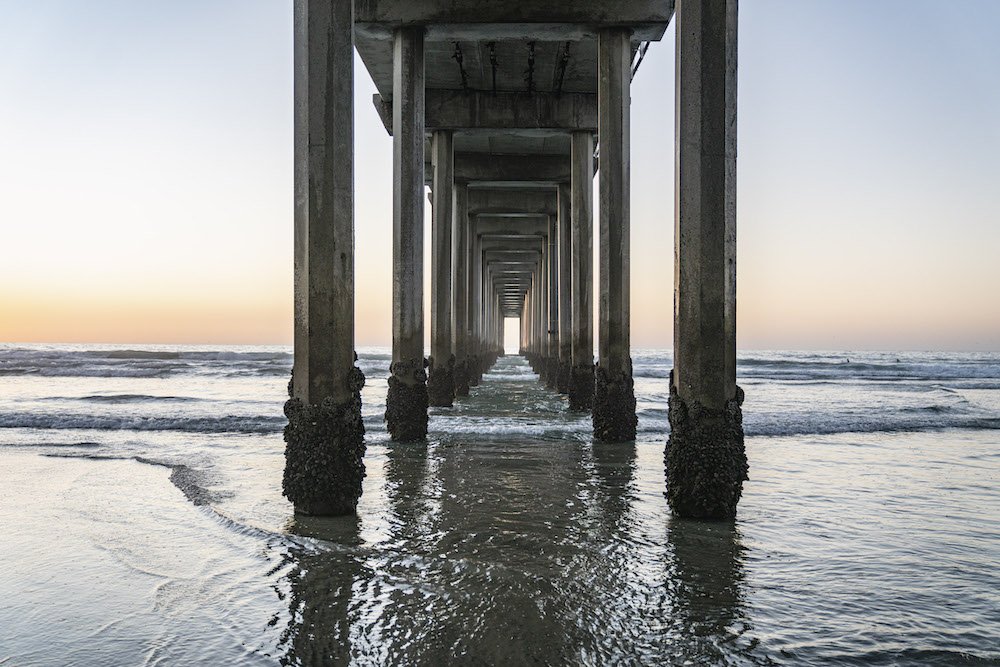Antarctica, the southernmost continent, offers a unique and awe-inspiring experience for travelers. Its pristine landscapes, diverse wildlife, and stark beauty are unparalleled. However, visiting Antarctica via cruise ship comes with a responsibility to protect its fragile environment. Here are the essential do's and don'ts to ensure a safe and respectful journey to this remote destination.
When on a small cruise ship to Antarctica, like AdventureSmith Explorations, you will most likely stop at one of the historical research centers. Photo by Dalton Johnson
The Do’s While visiting Antarctica
1. Do Plan Your Trip Thoroughly
Planning is crucial for a successful Antarctic adventure. Choose a reputable tour operator with experience in polar expeditions. Companies offering cruises to Antarctica, such as AdventureSmith Explorations, Aurora Expeditions, Quark Expeditions, and Lindblad Expeditions, adhere to strict environmental guidelines and provide knowledgeable guides.
2. Do Pack Appropriately
Antarctic weather is unpredictable, and temperatures can drop significantly. Pack layers of clothing, including thermal wear, waterproof jackets, and sturdy boots. Don't forget essentials like gloves, hats, and sunglasses with UV protection to shield against the intense glare from the snow and ice.
3. Do Respect Wildlife
Antarctica is home to incredible wildlife, including penguins, seals, and whales. Always maintain a safe distance from animals to avoid disturbing them. Follow your guide's instructions on how to approach wildlife safely. Remember, you are a visitor in their habitat.
4. Do Follow Environmental Guidelines
Antarctica's environment is incredibly fragile. Adhere to the guidelines set by the International Association of Antarctica Tour Operators (IAATO). These include rules like not littering, avoiding taking anything from the environment (including rocks, plants, and shells), and not disturbing historical sites.
5. Do Participate in Educational Programs
Most Antarctic cruises offer educational lectures and programs about the continent's history, geology, and wildlife. Take advantage of these opportunities to learn more about the environment you are visiting and the importance of conservation efforts.
6. Do Engage in Responsible Photography
Capturing the stunning scenery and wildlife of Antarctica is a must, but always do so responsibly. Avoid using flash when photographing animals, as it can startle them. Respect the natural behavior of wildlife and avoid getting too close for that perfect shot.
7. Do Prepare for Motion Sickness
The Drake Passage, the body of water between South America and Antarctica, is notorious for rough seas. If you are prone to motion sickness, bring appropriate medication and be prepared for potentially turbulent conditions.
8. Do Be Aware of Your Carbon Footprint
Traveling to Antarctica involves a significant carbon footprint. Consider offsetting your emissions by contributing to environmental projects or choosing tour operators that focus on sustainability and carbon offsetting.
The Don'ts While visiting Antarctica
1. Don't Disturb the Wildlife
It's worth repeating: Do not disturb the wildlife. This means no feeding, touching, or approaching animals too closely. Your presence should not alter their natural behavior or habitat.
2. Don't Leave Waste Behind
Antarctica is a pristine environment, and it’s vital to keep it that way. Always take all waste, including food scraps and personal hygiene products, back to the ship for proper disposal.
3. Don't Stray from Designated Paths
When on land, stick to designated paths to minimize your impact on the fragile ecosystem. Walking on moss or lichen can cause long-term damage, as these plants take years to grow.
4. Don't Remove Natural Items
Do not take any natural souvenirs from Antarctica. This includes rocks, shells, or plants. Even seemingly insignificant items play a role in the local ecosystem.
5. Don't Ignore Safety Instructions
Your safety and the safety of the environment depend on following the guidelines and instructions provided by your tour guides. Whether it’s advice on staying safe in icy conditions or how to behave around wildlife, it’s essential to listen and comply.
6. Don't Smoke or Use Open Flames
Smoking and the use of open flames are generally prohibited in Antarctica due to the risk of fire. Fires can spread rapidly in such dry, cold environments and have devastating effects on the local ecosystem.
7. Don't Engage in Unauthorized Activities
Activities such as diving, kayaking, or camping require special permits and expertise. Ensure any activities you participate in are approved and supervised by your tour operator to avoid accidents and environmental damage.
8. Don't Forget Travel Insurance
Antarctica is one of the most remote places on Earth, and medical facilities are limited. Comprehensive travel insurance that includes medical evacuation is a must. Ensure your policy covers the unique challenges of polar travel.
Wildlife Highlights
One of the main attractions of visiting Antarctica is the opportunity to see its unique wildlife. Here are some highlights:
Penguins
Penguins are the iconic inhabitants of Antarctica. Species you may encounter include the Emperor, Adélie, Chinstrap, and Gentoo penguins. Watching their playful antics and hearing their distinctive calls is a highlight of any trip.
Seals
Several species of seals live in Antarctica, including Weddell, Crabeater, Leopard, and Elephant seals. These fascinating creatures can often be seen lounging on ice floes or swimming in the icy waters.
Whales
Antarctic waters are rich feeding grounds for whales. You might spot Humpback, Minke, and Orca whales during your trip. Whale watching is a thrilling experience, especially when they breach or show their flukes.
Birds
Apart from penguins, Antarctica is home to a variety of bird species, including the majestic Albatross, Skua, and Petrel. Birdwatching enthusiasts will enjoy spotting these avian wonders in their natural habitat.
Molting penguins waiting to swim away after mating season. Photo by Dalton Johnson
Visiting Antarctica is a once-in-a-lifetime experience that offers unparalleled natural beauty and unique wildlife encounters. By following the do's and don'ts outlined above, you can ensure that your trip is not only memorable but also respectful and sustainable. Protecting this fragile environment is a shared responsibility, and every traveler plays a part in preserving Antarctica for future generations. Enjoy your adventure while leaving no trace behind.






